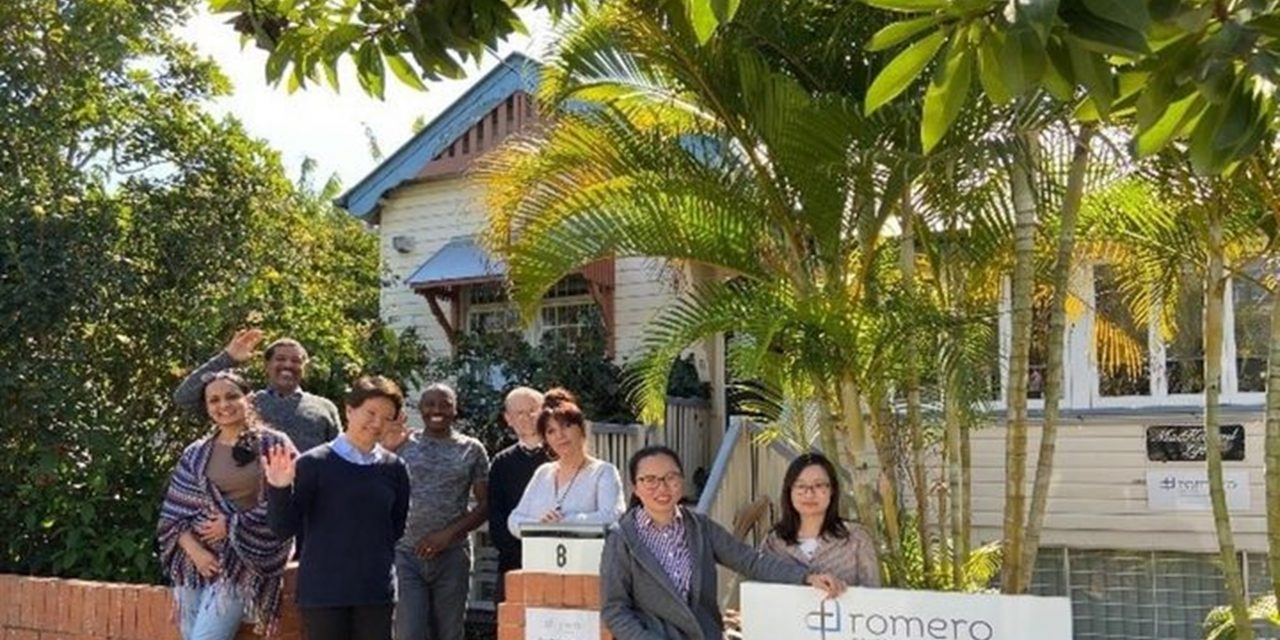According to the UNHCR, by the middle of 2021, there were an estimated 84 million displaced people worldwide. As of August 2021 there were 38,513 asylum seekers in Australia, excluding those in detention; 3,154 of these were in Queensland. The Romero Centre has been assisting over 1000 individuals and family members each year since 2000. Many people seeking asylum come to Romero with very little and are often homeless or at risk of homelessness.
Named for Oscar Romero, the Catholic bishop from El Salvador who was assassinated while celebrating mass, the centre is an entirely community-funded operation offering food, accommodation, legal advice, counselling, English classes, and general welcome and support.
In January this year, the Romero Centre acquired a three-bedroom unit with a long-term lease. It currently houses three single men, all of whom are on temporary visas and have no income. They are unable to access Centrelink payments, and while they have work rights, they have been unable to find work because of language barriers, mental health issues, or simply because of the COVID pandemic.
“The lease is for a year,” Deepa from the Romero Centre tells me. “We will do a three-month review to see where they [the three men] are at. We work closely with them in terms of employment and everything, but of course they are free to go and seek employment wherever they can. We communicate very regularly, but do three-monthly formal check-ins. Do they have income? Are they ready to support themselves and start transitioning out?”
The unit has been leased from Common Ground, a program run by Micah Projects that offers supportive and affordable housing to people who have been or are at risk of becoming homeless.
The Romero Centre provides approximately 27,000 nights of accommodation to refugees each year. As well as the new house, the Queen of Apostles Catholic parish in Stafford has provided them with a former convent where they can house up to eight single women. There is also a small unit attached which can accommodate a small family. Another house provided by Brigidine Catholic College at Indooroopilly currently houses a Tamil family.
But their main source of accommodation is what they call “host accommodation”, a program that has been operating since 2017. Anyone in the community willing to offer a spare room or perhaps a granny flat can volunteer to host refugees. Deepa tells me:
“When we find a suitable person we speak to the host, see what they’re offering, what their expectations are, what their limitations are. We always have people wanting accommodation.”
The time the person stays depends on their needs and how well they connect with their host, but it has ranged from a few weeks to even a few years. It mostly suits single people, especially if there is only one spare room, but there are always families needing accommodation as well.
For some refugees, their mental health is so severe that they are unable to be placed with a host family.
“We’ve been supporting people with severe mental health who can only live in very private, very quiet accommodation. So they don’t fit with our hosts. And we don’t usually put people with reported mental health [problems] in with a host.”
The Romero Centre also connects with other organisations such as Micah Projects, Red Cross, or the Department of Housing to provide physical and mental health support, education, employment, and legal or migration support. They have their own migration consultant and legal team that come in once a month to provide advice. They also have connections with businesses willing to offer employment.
As well as offering to open their homes, community members can donate to the pantry at Romero House.
“We put up a list every month of what we need in our pantry on our Facebook page, and people usually follow that and bring things in. And definitely vouchers, because we really like to give people the choice to go out and buy what they want.”
People can also volunteer. The Romero has a core staff of six, but around forty volunteers also help run the centre. They deliver pantry items to people unable to get to the centre, help out in the front office, organise fundraising events or go out to speak to schools and other organisations about the work of the Romero Centre.
“There is always so much generosity from the community,” says Deepa. “It’s amazing.”
The Romero Centre is based at 8 Dutton Street, Dutton Park. They can be found on Facebook at Mercy Community-Romero Centre or at https://romero.mercycommunity.org.au.


